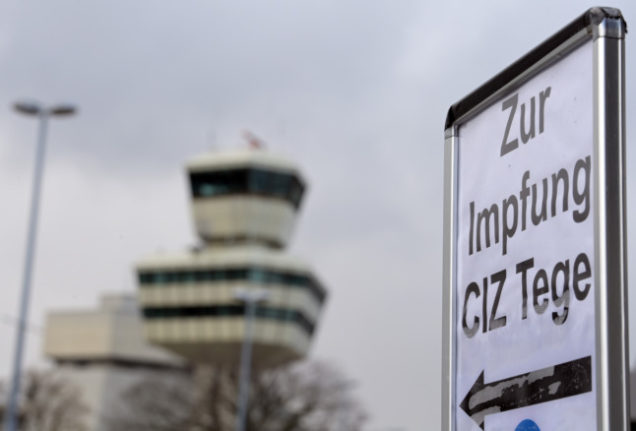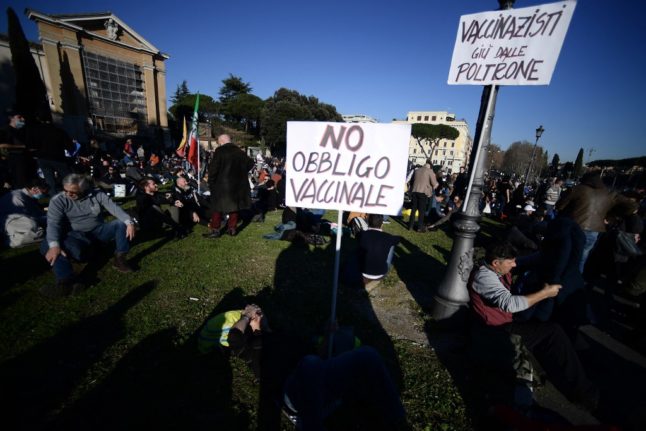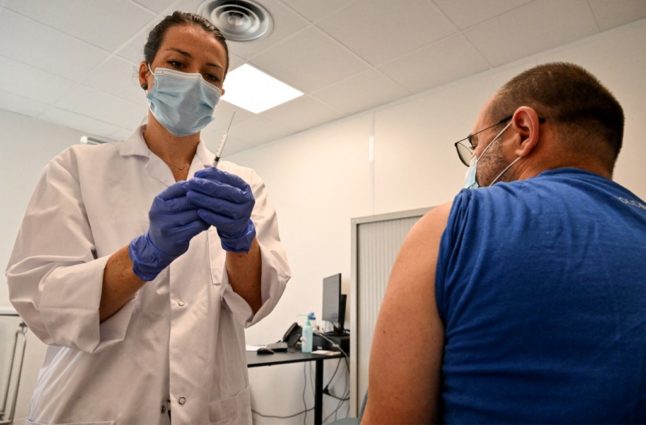With the the proportion of Delta variant Covid cases rising in Germany, experts are currently mulling over a new strategy to combat it: shortening the intervals between the first and second dose of the vaccine.
The new approach is being considered in light of the fact that vaccinated people are likely to be protected highly infectious variant – but only if they have had all necessary doses of the vaccine.
READ ALSO: Share of Delta variant Covid cases in Germany almost doubles in a week
“The question is not a trivial one,” Thomas Mertens, the head of the Standing Vaccination Commission (STIKO), told DPA.
According to the Ulm-based virologist, there are various pros and cons to shortening the gaps between doses.
“We are currently trying to secure the necessary evidence,” he added.
So far, Stiko has been recommending longer intervals between the two vaccinations than the intervals stipulated by regulators when the vaccines were approved.
There are good reasons for this: with AstraZeneca, for example, evidence suggests that the longer you wait between vaccines, the better immunity you have.
With limited doses of vaccines available – and ongoing supply issues – there is also an argument for providing as many people as possible with the first dose, so that as many people as possible are at least partly protected against the virus.
READ ALSO: ‘Vaccinate quickly’: German states seeing surge in Delta variant Covid cases
For AstraZeneca, the previous advice from the panel of experts at Stiko is to allow twelve weeks to elapse between the first and second dose. For the mRNA vaccines – Pfizer/BioNTech and Moderna – the recommended interval is six weeks.
According to the pharmaceutical regulators, however, a faster course would be possible: two BioNTech doses three weeks apart, with Moderna and AstraZeneca given four weeks apart.
In the case of the AstraZeneca vector vaccine, according to the Health Ministry, those wishing to be vaccinated are free to agree the interval individually with doctors within the permitted period of four to twelve weeks.
“A certain distance improves the effectiveness of the vaccine”
Helge Braun (CDU), Chancellor Angela Merkel’s chief of staff, told the Morgenmagazin on Thursday that the government’s main challenge was to offer all over-12s at the least one dose of the vaccine by the end of summer.
READ ALSO: ‘This can be a good summer’: Half of Germans vaccinated at least once against Covid
Regarding the timing of the second dose, the main concern should be effectiveness, he said.
“We just know that a certain distance improves the effectiveness of the vaccination,” he told reporters.
When pressed on whether shortening the intervals between doses was the advice of the hour, Braun said it wasn’t.
On Twitter, German immunologist Carsten Watzl pointed out that, while cases of Delta were rising as a proportion of infections due to falling infection rates overall, the actual number of infections with Delta was still stable – and may even be declining.
Der Anteil von Infektionen mit Delta Variante nimmt weiter zu. Aktuell bei ca. 6%, doppelt so viel wie letzte Woche. ABER: Die Gesamtzahl der Delta Infektionen ist stabil bzw. rückläufig. Daher noch kein Hinweis auf erhöhte Infektionszahlen durch Delta. https://t.co/EOT8G4FZcx pic.twitter.com/JXr6upIKtu
— Carsten Watzl (@CarstenWatzl) June 16, 2021
This means that the longer, 12-week interval for AstraZeneca vaccinations could be still be used as long as people were fully vaccinated by autumn, he said.
The virologist Christian Drosten has been pointing out for a long time that the first jab is not particularly effective against Delta.
This is also the view of Watzl, who would like to see the majority of people fully protected in time for a potential fourth wave of the virus.
“The second vaccination is urgently needed in order to be able to properly ward off the mutations,” he said in a recent interview with the German Press Agency.
“Shortening the current vaccination intervals, especially of BioNTech, of course makes sense in order to achieve complete inoculation as quickly as possible,” said the chief executive of the National Association of Statutory Health Insurance Physicians, Andreas Gassen, on Wednesday.
“The maximum vaccine interval for BioNTech is only justified by the lack of vaccines.”
In Germany, increased shares of the Delta variant, first discovered in India, are now being recorded.
However, the number of cases caused by the mutation has only increased relatively slightly so far, while the trend for infections caused by the still dominant Alpha variant is declining more sharply.
In the future, it is expected that Delta will overtake Alpha as the dominant variant of Covid-19 in Germany.




 Please whitelist us to continue reading.
Please whitelist us to continue reading.
Member comments